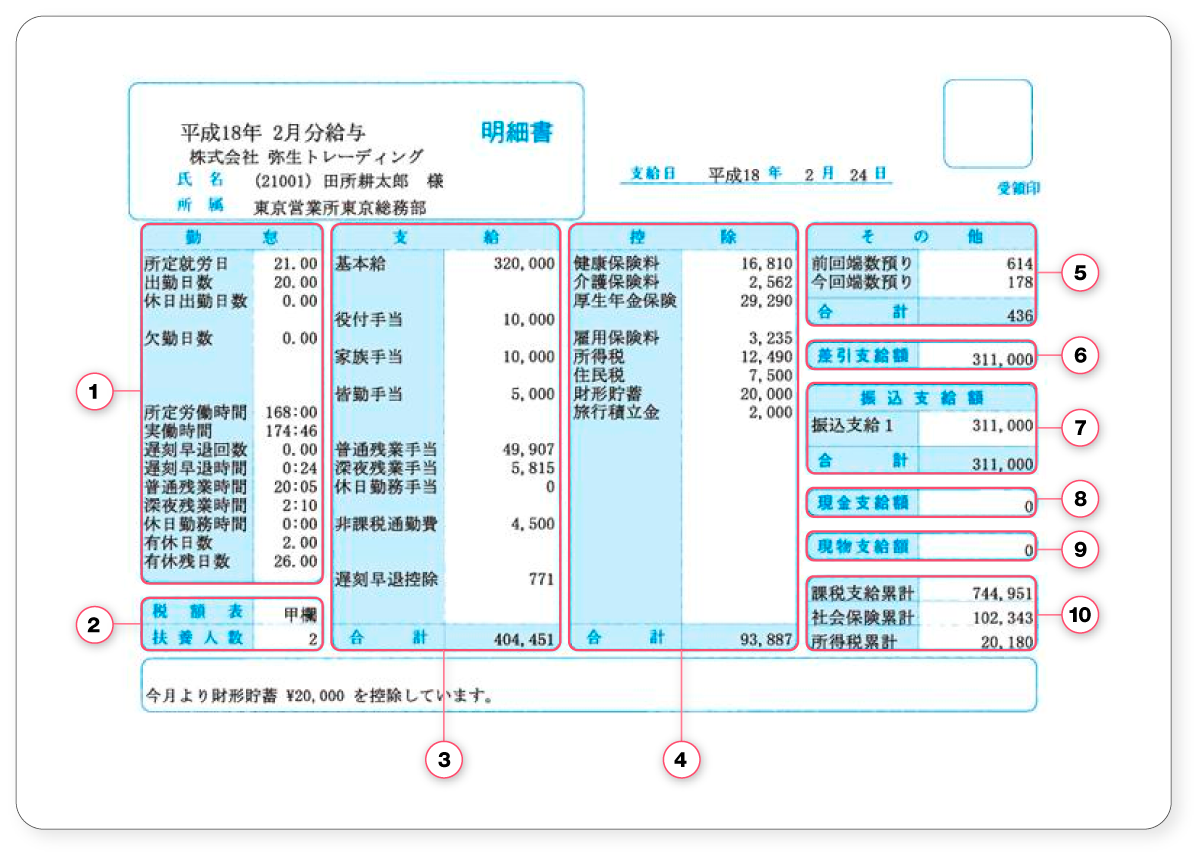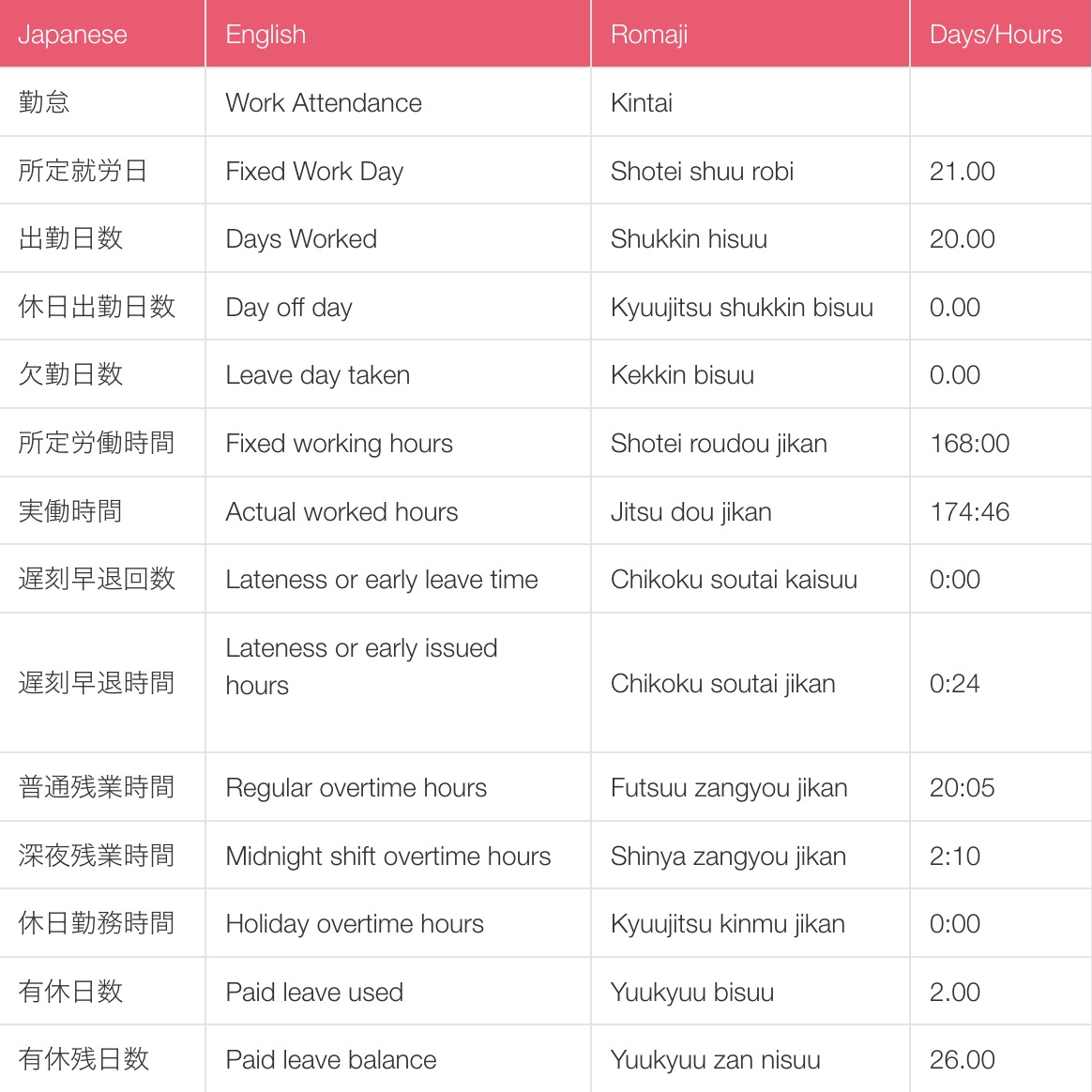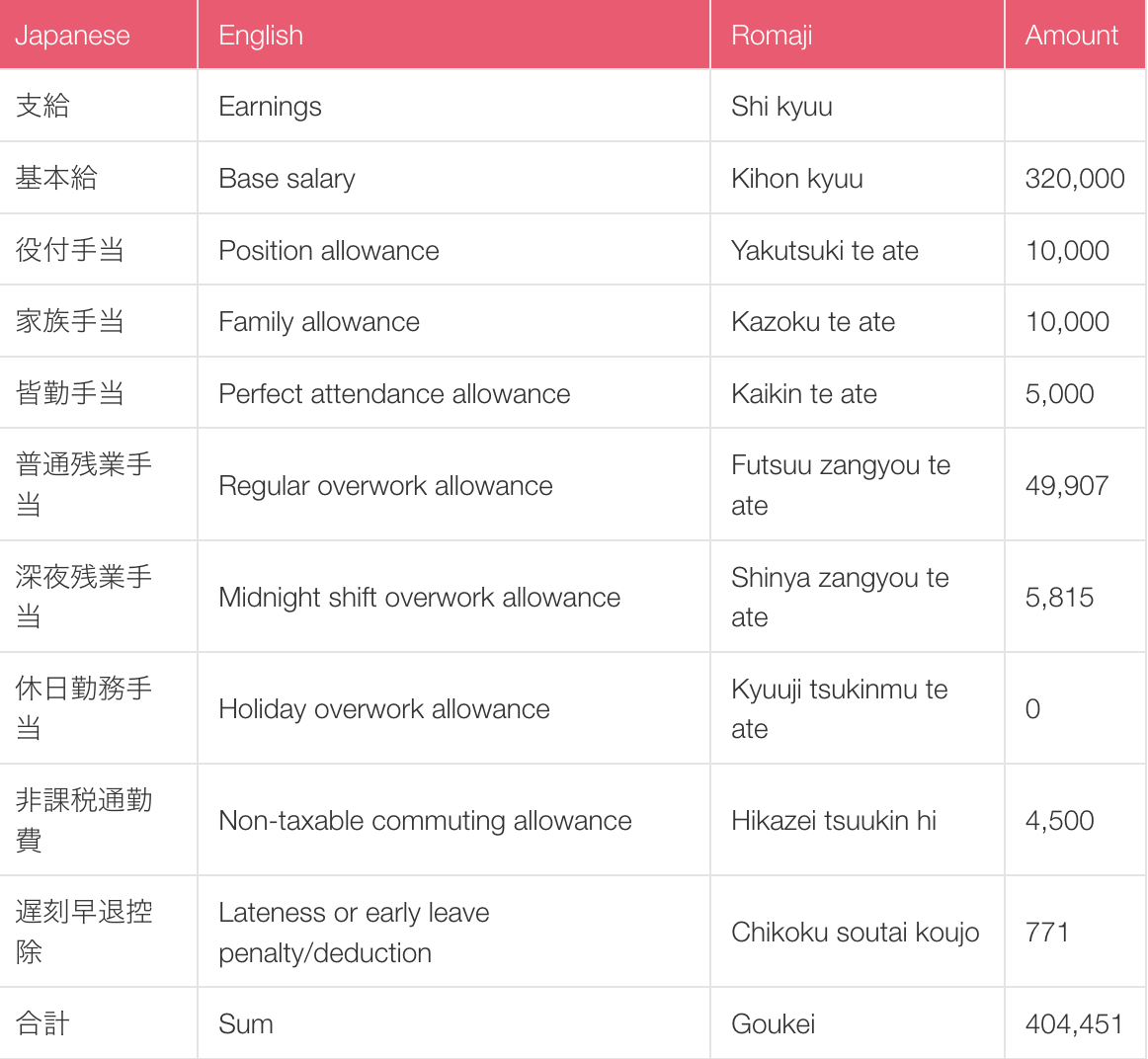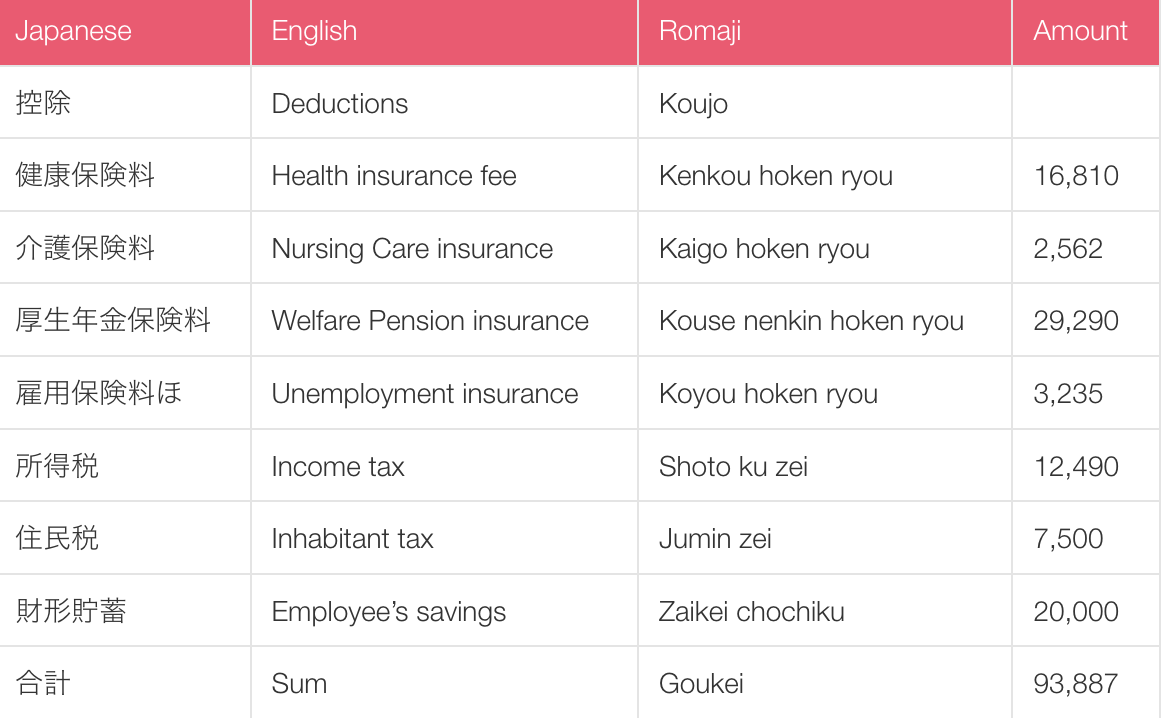If you work in Japan, then a payslip or kyuryou meisai is no stranger to you. You receive it either as a physical sheet of paper or a digital file. Upon opening it, you’ll see the breakdown of your salary, from special allowances or bonuses to how many more days of vacation you have. It can be overwhelming at first as it’s full of kanji (Chinese characters with Japanese meaning), but most of these payslips follow a relatively similar template. While they might differ slightly depending on the company, we’ve compiled this short guide on how to read a Japanese payslip.
Japanese Payslips
Payslips are normally distributed close to payday. It lists your work attendance, how much you earn and how much is deducted. When you receive it, always check the amount listed just in case of any errors. It’s recommended to hold onto your payslips for at least two years just in case because you can use them as proof of income tax payments. In the case of applying for unemployment benefits, these can help support your case. For more information about employment in Japan, read more on our Japan101 page.
Vocabulary for Japanese Payslips

To understand how much you’re actually earning (and what’s being taken away), you’ll need to familiarize yourself with some kanji. Keep in mind that Japanese payslips and their formats vary but usually have three major categories: attendance, earnings and deductions. Here’s what one of the many payslips in Japan looks like, broken down into parts.
1. Work Attendance
This section of the payslip covers the time you spent working. It includes an itemized account of your days worked, the number of vacation days left and any tardiness throughout the month.

2. Payer and Dependents
This part of the payslip details your dependents and who your main source of income is.

3. Earnings
See how much money you’ve made before taxes in this column of the payslip. From base salary to special allowances by your company, it should all be listed here.

4. Salary Deductions
Going through this part of your payslip will show you how much you’re paying for pension, taxes and different types of insurance.

Click here to read more.
- External Link
- https://gaijinpot.com/















2 Comments
Login to comment
SDCA
don't every look at the base salary 基本給 or you'll cry. Just try to come to terms with 差引支給合計 and you'll be less likely to experience anxiety.
wallace
In 30 years I have never had one because I have never worked for a company.